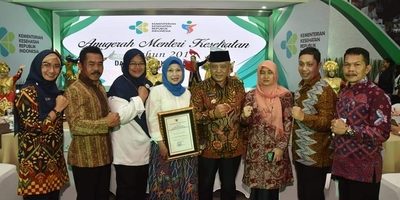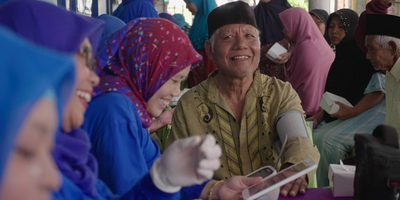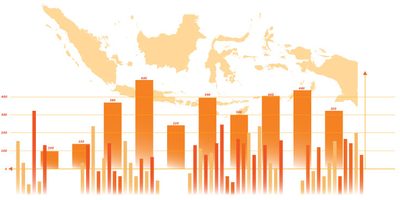
The George Institute and Indonesia’s Universitas Brawijaya join forces to strengthen health systems
Memorandum of Understanding
The George Institute has entered a five-year long partnership with Universitas Brawijaya, a leading university in East Java, Indonesia, to pursue the common goal of strengthening health systems and improving population health.
The Institute has signed a Memorandum of Understanding with the University through its Faculty of Medicine which provides education in the field of medicine and health and consists of schools of medicine, specialist medicine, midwifery, and pharmacy.
The association between the Institute and the University isn’t new. A consortium of researchers from The George and the University have partnered with the health authorities of Malang district in East Java since 2016 on a series of projects to strengthen primary health care. The flagship program in this partnership to-date is SMARThealth.
SMARThealth program
SMARThealth is a technology-enabled clinical decision support system (CDSS) developed by The George Institute that allows community-based health workers to assess risk of a range of conditions using basic equipment and refer those at high risk to nurses or physicians for further consultation. SMARThealth has been adapted for context and implemented in community settings across Australia, India and Thailand. In Indonesia, the SMARThealth program focuses on the prevention and management of cardiovascular diseases (CVD).
“The SMARThealth program showed remarkable results in Indonesia. It was effective in improving the use of CVD preventive drugs, and in lowering blood pressure levels among people at high CVD risk in earlier studies,” says Dr D. Praveen, who led the SMARThealth project in the country.
In 2019, the Malang district government received the best health services innovation award from the Indonesian Ministry of Health for their pioneering role in strengthening community based health care through the SMARThealth Extend Program. The SMARThealth model of care is currently being scaled up by the Malang district government to include all 390 villages over a five-year program, with The George and the University providing technical and evaluation support with funding from the National Health & Medical Research Council (NHMRC)/Global Alliance for Chronic Diseases.
Burden of cardiovascular disease
Indonesia has a population of over 270 million. Cardiovascular disease is responsible for 37% of all deaths. Stroke is the leading cause, followed by coronary heart disease, and type 2 diabetes. Facility-based primary health care services alone have limited capacity to diagnose, monitor or manage cardiovascular diseases and type 2 diabetes.
“Early community-based screening and appropriate management is crucial to reducing the incidence of cardiovascular events. Strengthening primary care to manage CVDs through existing established community health care networks is a potential way to do this effectively,” says Dr. Sujarwoto, Senior Researcher at the University of Brawijaya.
The partnership between The George Institute and the University aimed at improving health systems will lay the foundation for meaningful research to address some of these challenges. The Memorandum of Understanding covers collaboration on academic and research activities, funding applications, publications, and capacity building activities including post graduate research, supervision, and exchange/placement opportunities.
It also proposes to work together on advocacy and thought leadership activities to promote wide dissemination of research work and impact.
“We believe this collaboration has the potential for meaningful and authentic knowledge-exchange. We have already done impactful work with our colleagues in Indonesia. This partnership will set the course to take that forward, come up with innovative solutions to support and strengthen health systems and improve health outcomes on a large scale,” says Dr. Anna Palagyi, Senior Research Fellow in Health Systems at the George Institute for Global Health








